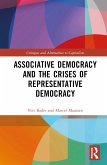This book provides a lucid, rigorous and critical account of the commons, its history and its political potentialities as well as its limitations and ambiguities. In particular, The Commons analyses the relations of solidarity and conflict between the commons and public welfare policies, as well as the role the commons can play in the struggle against the global socioecological crisis that is threatening the very future of humanity.
Over the past decade, various theories, concepts and political projects connected to the commons have become fundamentally important for social science and numerous social movements around the world. In sociology, economics, political science, history, geography, the law and anthropology, the study of the commons has inspired many important academic innovations. In parallel, community activists, labour unions, ecologists, feminists and cooperativists have discovered in the commons a powerful and thought-provoking toolkit with which to defend public services, guarantee access to cultural goods, organise reproductive and care work and more generally fight against commodification and ecological destruction. The first two chapters analyse the dual origin of the academic rediscovery of the commons. On one side, from the realm of political science and economics, the concept of the commons has been used to challenge the dominant paradigms founded on rational choice theory. On the other, from the fields of history, law and anthropology, analysis of the violent destruction of the commons has served to deepen our understanding of the coercive and antidemocratic processes that form the bedrock of capitalism and our current plight. The third and fourth chapters examine the role that the commons can play in emancipatory political projects aiming to deepen democracy in mass industrial societies.
The Commons will appeal to scholars across the social sciences and academics with interests in social and political theory, the environment and sustainability, and political sociology.
Over the past decade, various theories, concepts and political projects connected to the commons have become fundamentally important for social science and numerous social movements around the world. In sociology, economics, political science, history, geography, the law and anthropology, the study of the commons has inspired many important academic innovations. In parallel, community activists, labour unions, ecologists, feminists and cooperativists have discovered in the commons a powerful and thought-provoking toolkit with which to defend public services, guarantee access to cultural goods, organise reproductive and care work and more generally fight against commodification and ecological destruction. The first two chapters analyse the dual origin of the academic rediscovery of the commons. On one side, from the realm of political science and economics, the concept of the commons has been used to challenge the dominant paradigms founded on rational choice theory. On the other, from the fields of history, law and anthropology, analysis of the violent destruction of the commons has served to deepen our understanding of the coercive and antidemocratic processes that form the bedrock of capitalism and our current plight. The third and fourth chapters examine the role that the commons can play in emancipatory political projects aiming to deepen democracy in mass industrial societies.
The Commons will appeal to scholars across the social sciences and academics with interests in social and political theory, the environment and sustainability, and political sociology.
If, as Thomas Aquinas once wrote, "in the case of necessity all things are common", we need to read this book this same week. Cesar Rendueles - a sociologist whose new books are always an event for those of us interested in the most pressing issues of our lives - does not simply explain why we are in a condition of "necessity," that is, framed in ecological, political, and technological emergencies, but also how to reclaim our "commons." These are collaborative social institutions that regulate resources (public goods and services) which in a relatively brief period of time will become less and less accessible for millions of people that currently take them for granted. This book provides all those brave social forces advocating for democratic, progressive, and emancipatory strategies a global "politics of commons" that seems to be our last chance as we enter the new regime of postcapitalism. Aquinas himself would have endorsed Rendueles' new book.
Santiago Zabala, ICREA Research Professor, Pompeu Fabra University, Spain
Santiago Zabala, ICREA Research Professor, Pompeu Fabra University, Spain









